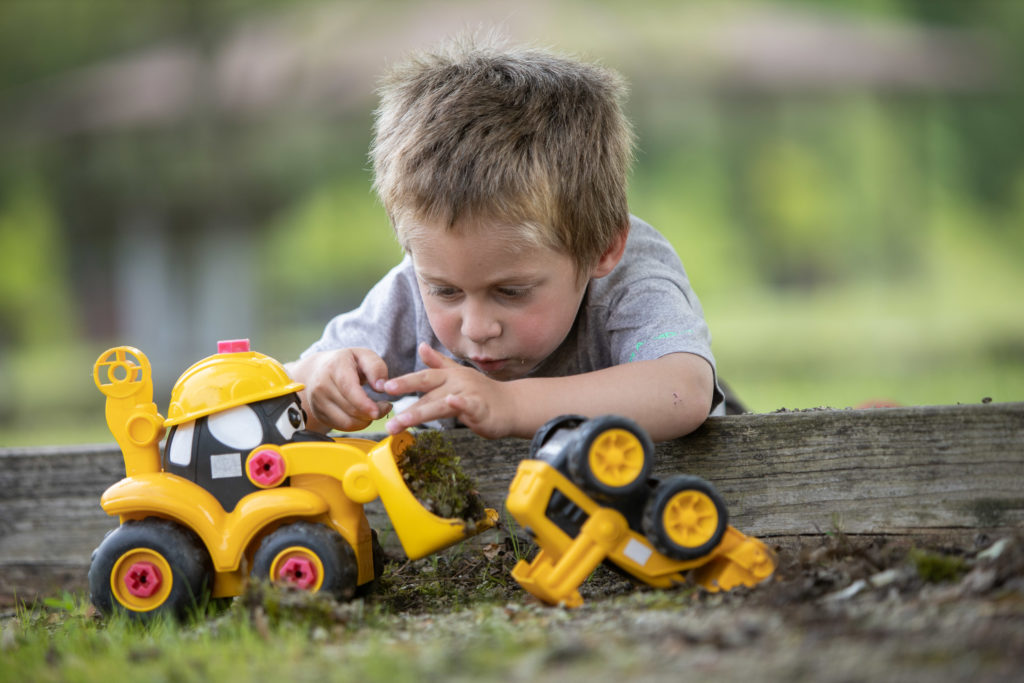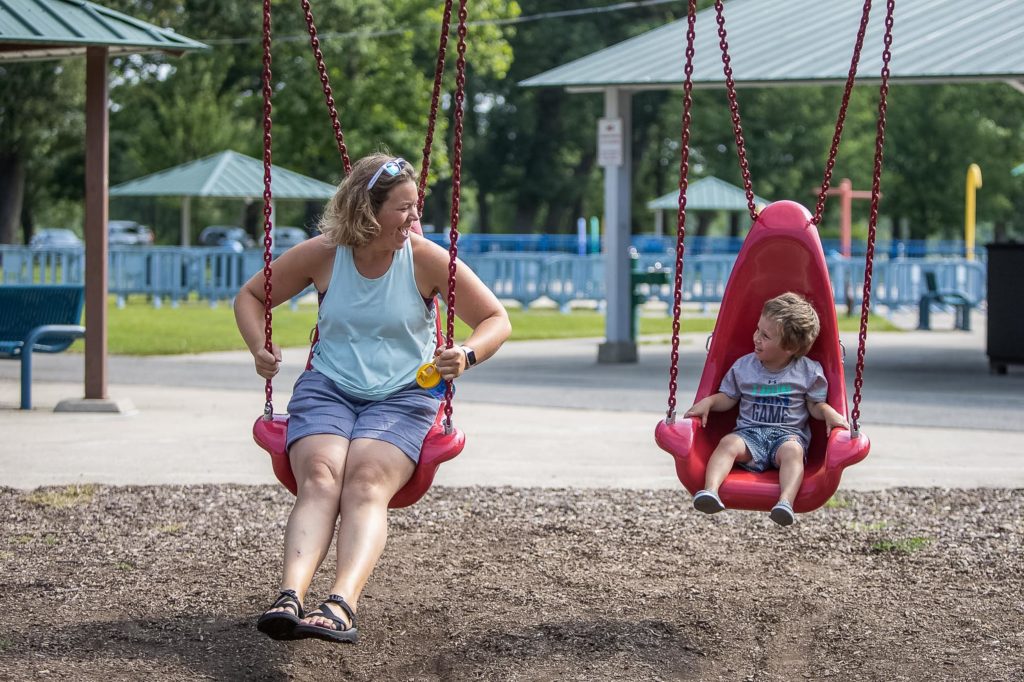Scout Badge Labs | Play, Tinker, Explore!

Scout Badge Labs | Play, Tinker, Explore!

By Alix Tonsgard, MS, Early Learning Specialist, DuPage Children’s Museum
We often talk about how young children are natural-born scientists and how, through play, they are creating and testing hypotheses and answering questions as a means of collecting data as they seek to understand the world around them and the things that are in that world. While we do talk about supporting the social emotional development of young children, we don’t often talk about children’s innate drive to also be social scientists.
The first few years of a child’s life are filled with “firsts”: every time a child sees, hears, touches, or experiences something–or someone–for the first time. Every interaction with a person is data collection as children work to make sense of their social as well as their physical world. It’s possible that we don’t talk about this as much because young children often process and work through their experiences with people and the social world over time and in a very personal way; however, similar to the way children test hypotheses in play, they often work to make meaning of their experiences and their big social questions when deeply engaged in play.

The little guy in my life really loves trucks, rocks, sand, and mucking about. We have been playing a lot with leveling sand. (Side note: leveling sand has little bits of rock and is grittier than play sand, and we love it for this reason.) This type of play tends to put him in a deep state of relaxed, focused play, which is amazing when I am trying to work from home, but also gives us insight into one of the reasons why play is so powerful.
When children are in this state, they feel safe and doors start to open, giving you a glimpse into what they are thinking about and what they may be struggling to make sense of. For our little guy, there are currently two major themes: his own big emotions and the work he is doing to control his feelings, as well as the fact that the two teenagers in our house, who are very important people in his life, have gone on an extended trip and he is confused as to why they are gone.
I share this with you because right now there are a lot of things going on in the world that your child is trying to understand that many adults don’t feel prepared to explain. They may have caught glimpses of the news and have questions about protests. Maybe they are noticing skin color or issues about race for the first time. I urge you to take some time to slow down, get lost in your child’s play, see where it leads you, and help guide them as they work to negotiate this complicated world.

Don’t worry about explaining anything just yet. Focus on unpacking and getting a feel for what your child is seeking to understand. With young children, when you have a back-and-forth dialogue that focuses on responding with open-ended questions, the conversations tend to come to a natural stopping point because they need space to chew on, process, and explore their ideas. The next time a conversation heads in this direction, here are some suggestions to guide you as you navigate –
Tips:
I know that these conversations are hard and we might not always feel comfortable or prepared to have them but avoiding or ignoring them sends a powerful, negative message to your child. Our children need to know that we are human and struggle to understand things just as they do. There is nothing wrong with telling your child, “that’s a really good question and it confuses me too. It’s important that we talk about the things that confuse us or make us sad or angry.” If your child is older, you can come up with ways to investigate the topic or action steps you can take as a family. The most important thing is to create safe spaces for them to express their feelings, listen to them, keep the conversation going, and never stop learning.
——————————————–
About Alix
Alix Tonsgard is the Early Learning Specialist at DuPage Children’s Museum. She holds an MS in Child Development from the Erikson Institute. Acting as the Museum’s advocate for early childhood development and learning, she ensures that the latest research in Early Childhood Education is represented in all Museum exhibits, professional development initiatives, and public programs.

